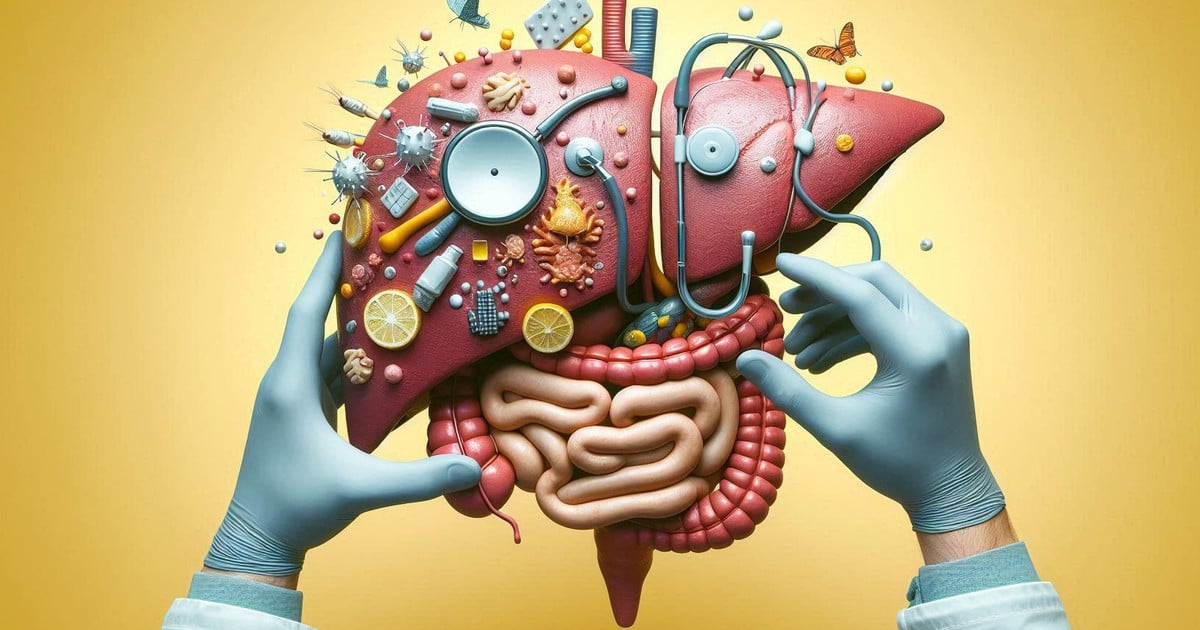Occasional insomnia is normal. However, persistent insomnia can be caused by an underlying health problem. Experts say insomnia is not always caused by stress, but can also be caused by liver problems.
Fatty liver disease can affect sleep and cause difficulty sleeping. The disease occurs when excess fat accumulates in the liver and causes inflammation, eventually causing hepatitis, according to the health website Medical News Today (UK).

Insomnia and difficulty sleeping are not only caused by anxiety and stress but can also be caused by liver problems.
Insomnia due to liver disease is often accompanied by fatigue and itchy skin.
In fact, the sleep-wake rhythm of people with fatty liver disease will be slightly different from that of healthy people. A study published in the journal Frontiers in Network Psychology found that about 55% of people with fatty liver disease often wake up in the middle of the night. They also need more time to fall asleep.
Fatty liver is a metabolic disorder that impairs the ability to regulate blood glucose and lipid levels. The consequences of this condition include energy imbalance and sleep quality problems.
In addition, the liver also has another function of participating in the process of regulating hormones, including the hormone melatonin. This hormone helps you fall asleep easily. However, fatty liver reduces melatonin production, disrupting the circadian rhythm, leading to difficulty falling asleep and staying asleep.
Liver infection causes inflammation in the liver. This inflammation affects the entire body, making it difficult to relax and sleep. It also reduces the liver's ability to function, causing toxins to build up in the body and making it difficult to sleep.
Fatty liver disease often develops silently over many years. Therefore, people with the disease will not notice symptoms in the early stages.
Insomnia due to liver disease is often accompanied by symptoms such as fatigue, discomfort and itchy skin. The patient will experience a feeling of prolonged fatigue, abdominal pain in the right hypochondrium. Toxins accumulate in the blood, causing itchy skin. Other symptoms of liver disease include unexplained weight loss, jaundice, yellow eyes, and abdominal swelling.
When these signs are detected, the patient needs to go to the hospital for examination as soon as possible. In addition to taking medication, the doctor may recommend that the patient change their lifestyle, control their weight, reduce excess fat, avoid alcohol, and foods high in sugar and starch, and instead eat more vegetables and fruits, according to Medical News Today .
Source: https://thanhnien.vn/mat-ngu-khi-nao-la-dau-hieu-cua-benh-gan-185241211135047085.htm


![[Photo] Phuc Tho mulberry season – Sweet fruit from green agriculture](https://vstatic.vietnam.vn/vietnam/resource/IMAGE/2025/4/10/1710a51d63c84a5a92de1b9b4caaf3e5)



![[Photo] Unique folk games at Chuong Village Festival](https://vstatic.vietnam.vn/vietnam/resource/IMAGE/2025/4/10/cff805a06fdd443b9474c017f98075a4)
![[Photo] Prime Minister Pham Minh Chinh chairs meeting to discuss tax solutions for Vietnam's import and export goods](https://vstatic.vietnam.vn/vietnam/resource/IMAGE/2025/4/10/19b9ed81ca2940b79fb8a0b9ccef539a)























































































Comment (0)